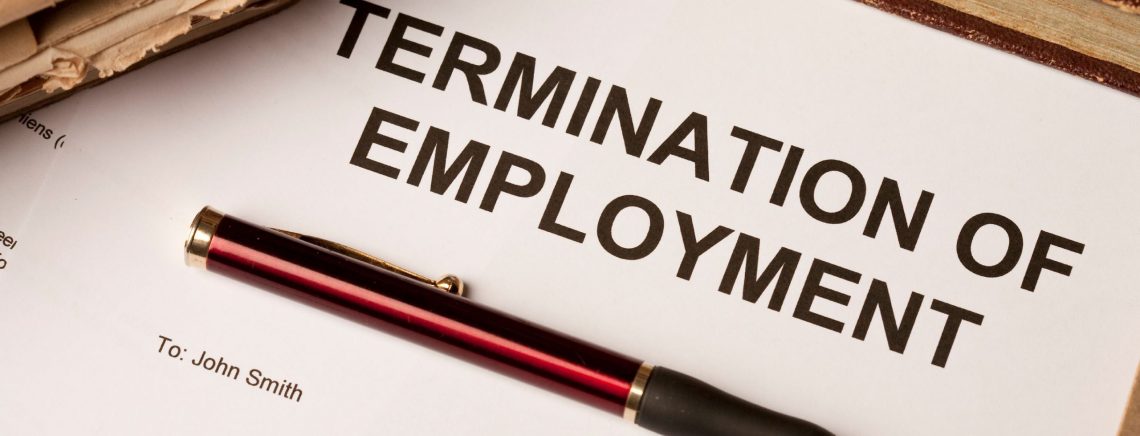Notice Period: Within a business, it’s constantly necessary to re-evaluate and adjust workforce planning. Whether this is due to employees looking for different career paths or the company needing to let someone go someone go, notice periods can help employers deal with the disruption of losing a staff member.
Dealing with notice periods can seem like a simple enough procedure. However, you must tailor each case to the individual situation.
Here we explain what a notice period is and some of the most common obligations to be borne in mind by employers.
What is a notice period?
From an employer’s perspective, a notice period is the length of time that an employee must receive their entitlements, under their contract of employment, before it can be terminated. Likewise, an employee must give their employer notice if they intend to leave their position.
As an employer, you may have various reasons for ending an employment contract. Grounds for dismissal include professional incompetence, gross misconduct, redundancy, or physical incapacity.
In Ireland, there is an established minimum notice period, which is regulated by the legislation Minimum Notice and Terms of Employment Acts 1973 to 2005.
Depending on the circumstances, employers may or may not have to provide a paid notice period at all. To make sure you understand your obligations, it’s important to seek expert advice before confirming a termination.
The primary aim of employment notice periods is to give both employer and employee an opportunity to plan for the impact of the termination of a working relationship. Notice periods help minimise business disruption and protect employers against the consequences of a key employee suddenly departing.
How do you calculate the length of a notice period?
To determine how long of a notice period to set, you can start to look at an employee’s business position and their length of service.
On the worker’s end, employees who have completed 13 weeks of continuous service are entitled to a statutory minimum notice period of one week.
It’s recommended that employers to provide specific contractual notice periods for long-serving employees who are valuable to their business. Contractual notice periods typically exceed the statutory minimum.
The statutory minimum notice periods are set out below:
Length of service
Minimum notice period
13 weeks to 2 years
1 week
2 to 5 years
2 weeks
5 to 10 years
4 weeks
10 to 15 years
6 weeks
More than 15 years
8 weeks
Contractual and statutory notice period in Ireland
Even if notice periods aren’t mentioned in an employment contract, employees in Ireland still enjoy the protection of the statutory minimum notice periods from the Minimum Notice and Terms of Employment Acts 1973 to 2005.
Employers are permitted to a contractual notice period, and they should include this into an employment contract upon hiring a worker. However, you should consider the business position of the employee first. And, you should have a valid business reason for deciding on a particular contractual notice period.
You should agree with your employee on any changes made to the contractual notice period before making the modifications. And remember, under Ireland’s employment law, contractual notice periods must be no shorter than the applicable statutory minimum notice period.
Do you have to give notice during a probationary period?
As an employer, you’re not legally required to give notice to employees who have worked for less than 13 weeks. These employees are not legally entitled to the right for minimum notice periods.
Employees who have worked longer than 13 weeks (even during a probationary period) are entitled to the relevant statutory minimum notice period.
Do employees need to work during notice periods?
Professionally speaking, if an employment contract includes a period of notice, employees should fulfil those terms.
In certain circumstances, however, it may make more practical sense to waive the notice period or alternatively to pay the employee in lieu of notice—as long as it is agreed with the employee.
Redundancy entitlements
One of the entitlements that an employee has a right to within redundancy settlements is their notice period. The amount will depend on their length of service and/or the terms of their contract.
PILON (payment in lieu of notice)
Employers can choose to pay an employee (PILON) instead of asking them to work during their notice period. Employees who don’t work during notice periods are still entitled to receive their contractual pay for the duration of the employment contract.
Maternity leave notice period
It is against the law to dismiss an employee who is on maternity leave. A notice period should only begin when an employee has completed her maternity leave and returned to work. Employers must be very careful to help avoid discrimination claims if terminating the employment contract of a member of staff who is on maternity leave.
Garden leave
In some cases, an employer will use garden leave in place of a notice period. Here, the employee remains on the business payroll but is directed to stay away from working and from the premises itself.
Employers should seek advice on what benefits and entitlements their staff can receive during a period of garden leave before implementing this type of notice period.
Reasons for dismissal
Businesses can often be impacted by financial needs – and, by the behaviour of individual employees. An employee’s abilities, working performance, or misconduct may amount to sufficient reasons for dismissals.
In any situations involving termination of employment, it’s important to ensure to take notice periods into account.
The Workplace Relations Commission will order any employers who breach the minimum notice legislation to pay compensation to aggrieved former employees.
Get expert advice on notice periods
Notice periods are commonly used in businesses and are a straightforward means of protecting your business.
However, you should always seek advice and check the statutory and contractual notice periods that apply before terminating an employment contract.
For expert HR advice on notice periods or any other employment issues, contact us on 01 886 0350 or request a callback here.


